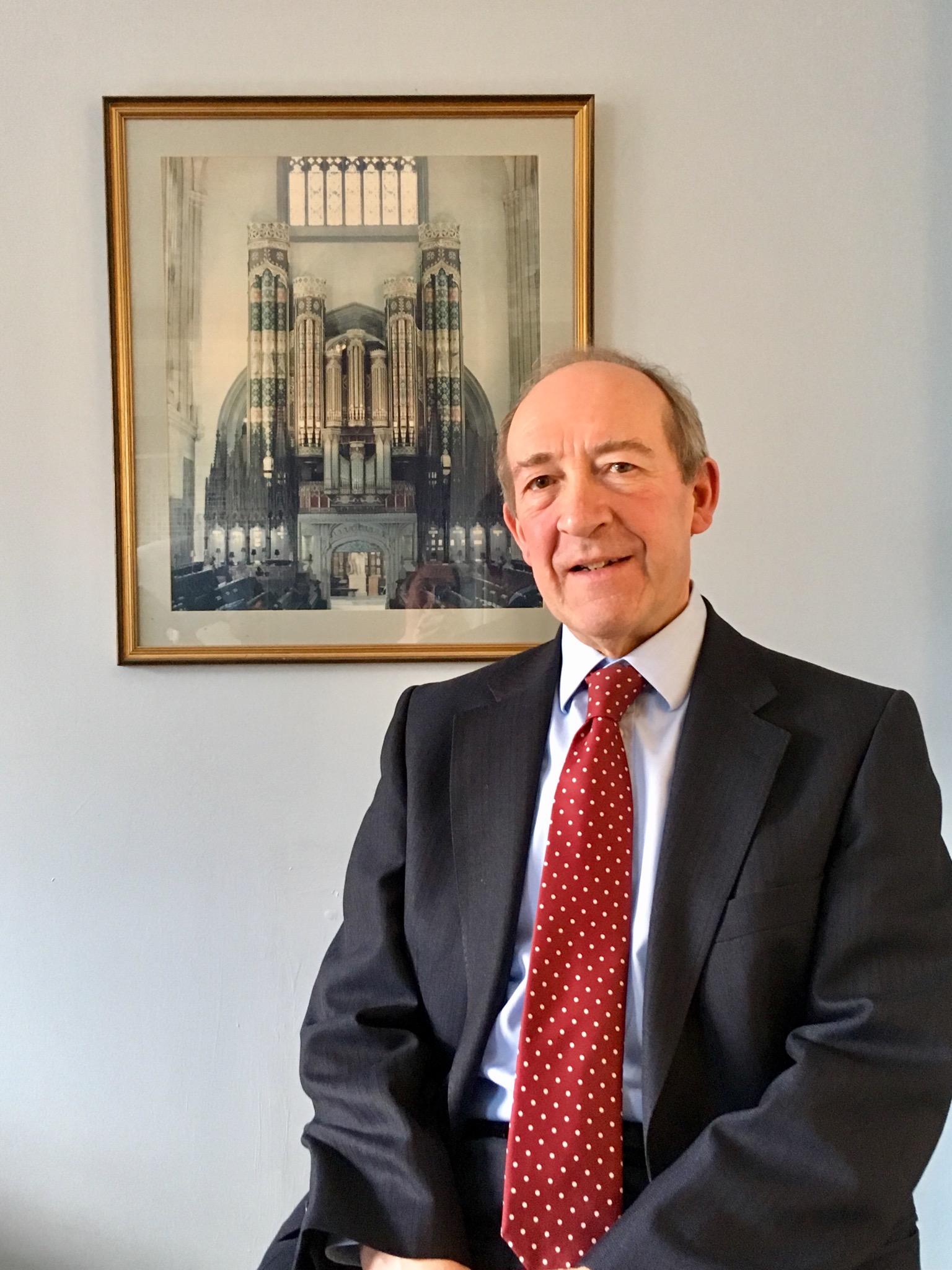The pipe organ has long captivated the Revd Canon Dr Nicholas Thistlethwaite, the Dean’s Vicar and a Bye-Fellow at Gonville & Caius College.
Nicholas is one of this country’s most experienced organ consultants, whose projects include new or restored organs in the cathedrals at Chelmsford, Bury St Edmunds and Norwich, as well as instruments in Birmingham Town Hall, Eton College Chapel and Buckingham Palace. His interest stems from his postgraduate studies at the University of Cambridge.
He says: “My PhD was about the tonal and mechanical evolution of the Victorian Organ. During the three years I was preparing it I spent a lot of time crawling around inside organs discovering how they work. I built on that experience, visiting a lot of historic organs. I also got to know a lot of organ builders and gradually became involved in giving advice to churches, cathedrals, schools and colleges.
around inside organs discovering how they work. I built on that experience, visiting a lot of historic organs. I also got to know a lot of organ builders and gradually became involved in giving advice to churches, cathedrals, schools and colleges.
“The sheer complexity of the organ is part of its fascination. It also has an extraordinary history going back a couple of thousand years; something we would still recognise as a pipe organ was around in Roman times, but then it accompanied Bacchanalian feasts rather than Christian worship.
“By the 14th century you had musical instruments with pipes and keyboards very like modern organs, though of course, some of those we have today are more complex and technologically advanced.”
Nicholas, who was a History undergraduate at Selwyn College before his PhD in the Faculty of Music, adds: “In terms of sound generation there really is still no comparison between digital or electronic organs and a real pipe organ. Although today’s digital organs are a huge advance on the old electronic organs of 30-40 years ago, they’re still not the same as a real pipe organ. Because they have electric keyboards, it’s like putting on a light switch when you press a key: it’s either on or off.
“Whereas in an organ with a mechanical (tracker) action a series of wooden levers and rods transmits the player’s action at the keyboard to the valve which lets wind into the pipe causing it to ‘speak’, and allowing the player to control to some extent the articulation.
“For the satisfaction of the player and the musical sophistication of the result, the pipe organ remains, in my view, superior to the digital substitute.”
The organ has been central to Nicholas' life and career alongside his full-time ministry as a priest in the Church of England. Following his PhD, he read Divinity at Oxford and was then ordained. He spent three years as a curate in Newcastle, eight years as Chaplain, and later Fellow and Tutor at Caius in the 1980s, and then became Vicar of Trumpington, a role he held for nine years. Nicholas moved to Guildford Cathedral in Surrey, where he was Canon, Precentor and Sub Dean until his retirement.
Vicar means substitute and Nicholas’ role at Caius is to support and on occasion deputise for the Dean, The Revd Dr Carolyn Hammond. He has been at Caius for six years and has now been named a Bye-Fellow.
“I have many good friends of my generation, but I also value the opportunity to meet young people and hear the opinions of those who are perhaps two generations younger than me now,” he says.

